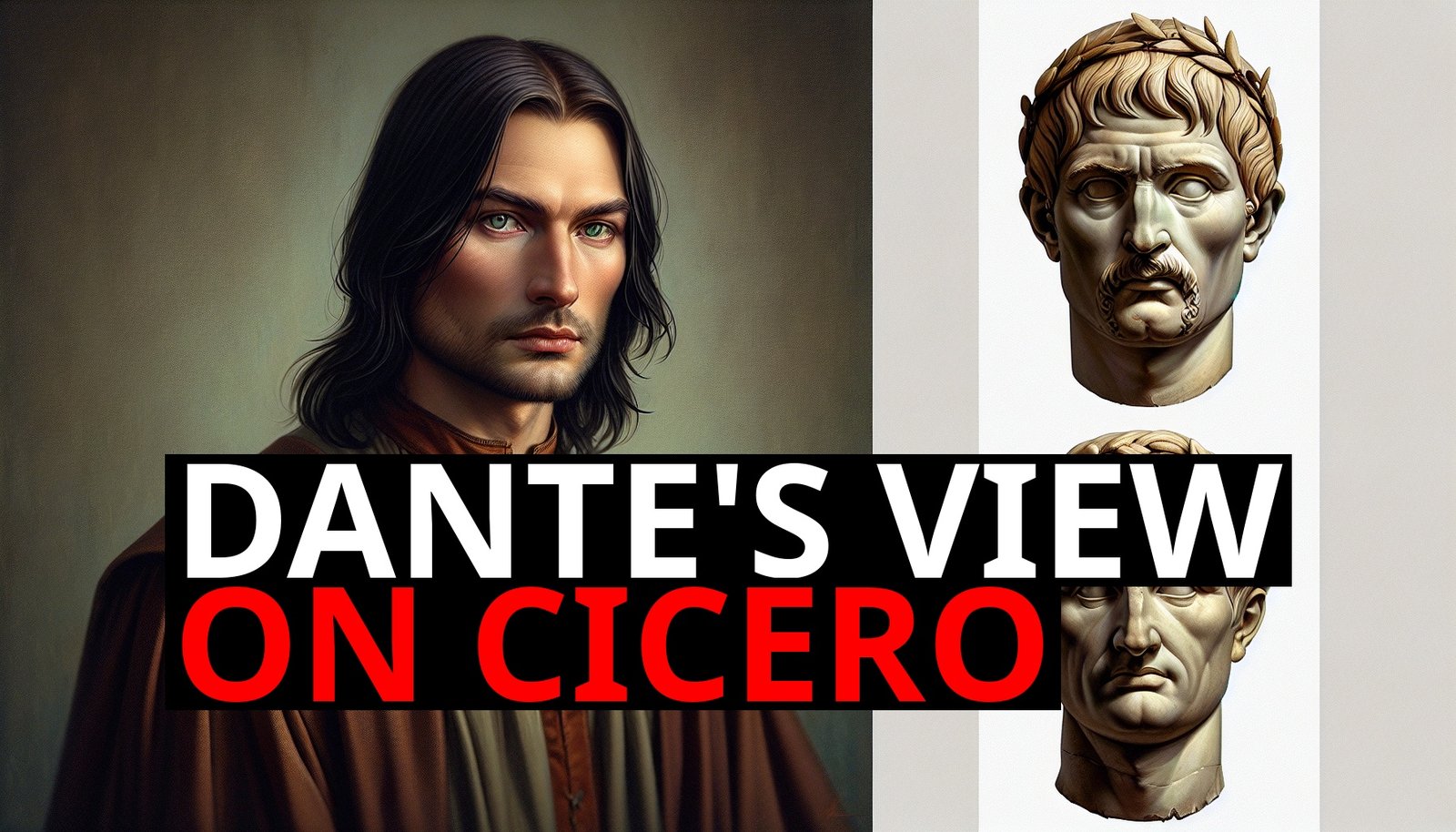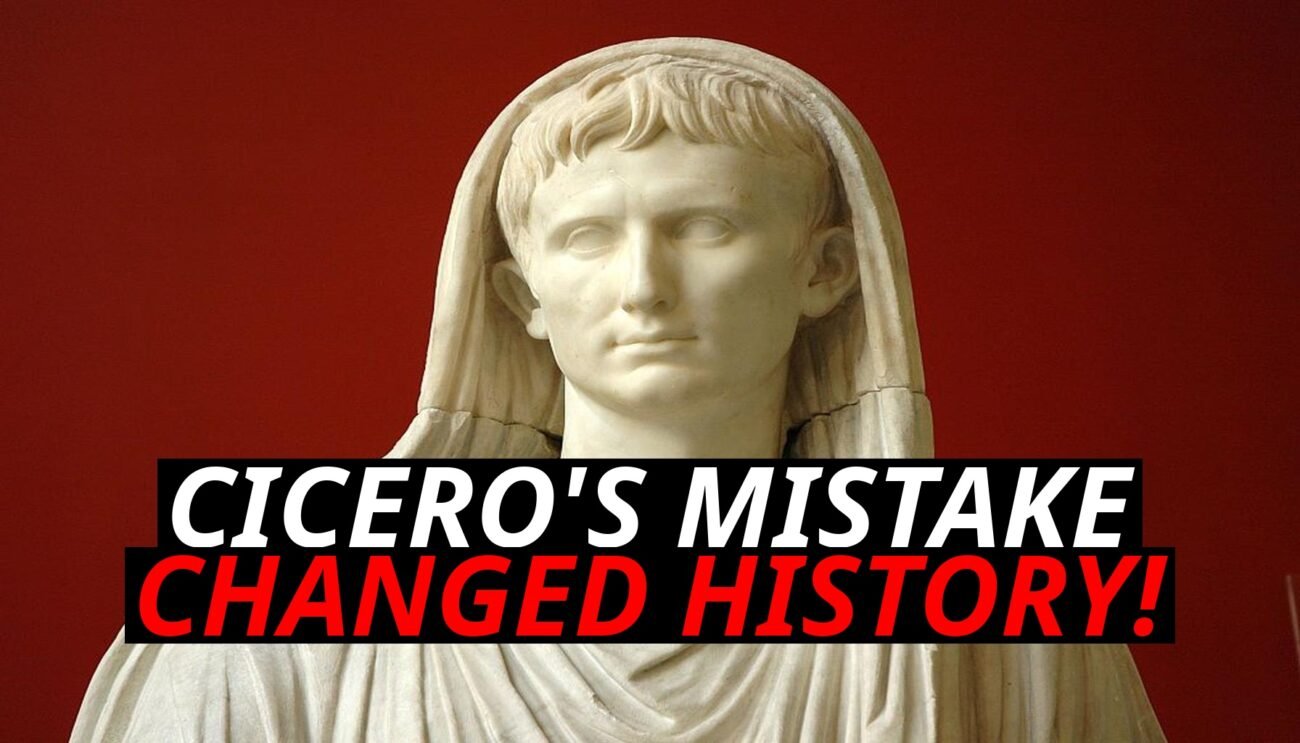In _The Divine Comedy_, Dante Alighieri journeys through the afterlife, encountering a host of historical and mythological figures who represent the full spectrum of human virtue and vice. Among the most striking decisions in Dante’s epic is his placement of Cicero, the famed Roman orator and defender of the Republic, in Limbo—a realm reserved for virtuous pagans—while condemning Brutus and Cassius, the assassins of Julius Caesar, to the lowest circle of Hell alongside Judas Iscariot.
Why did Dante, who had no qualms about casting Brutus and Cassius as traitors of the highest order, show such sympathy toward Cicero? To understand this, we must explore how Dante viewed Cicero’s intellectual contributions, his political failures, and his moral standing.
The Divine Comedy’S Structure: Where Virtue Meets Justice
Dante’s _Inferno_ is not just a tour through Hell; it is a structured, hierarchical system of justice. Each circle is meticulously organized to reflect the gravity of the sins committed by the souls residing there. The deepest circles are reserved for the worst offenders—those who have betrayed the ultimate bonds of trust. This is why we find Brutus and Cassius, who betrayed Caesar, in the very heart of Hell alongside Judas, who betrayed Christ.
But Limbo, where Dante places Cicero, is different. It is a place for those who led virtuous lives but, through no fault of their own, were not privy to the salvation brought by Christ. Here, we find the great thinkers, poets, and philosophers of the ancient world—Homer, Socrates, Plato, and Virgil. They are not in Hell for their sins but are still outside Heaven’s reach because they lived before Christianity. It is telling that Dante chooses to place Cicero among these figures.
Cicero’S Intellectual Contributions: A Legacy Of Virtue
Dante’s treatment of Cicero begins with his acknowledgment of Cicero’s profound intellectual contributions to Western thought. Cicero was not merely a politician; he was a philosopher who wrote extensively about ethics, law, and justice. His works on duty (_De Officiis_), the nature of the state (_De Re Publica_), and oratory remain cornerstones of moral philosophy and rhetoric.
- A Champion of Justice: Dante, as a deeply philosophical writer himself, would have recognized Cicero’s efforts to define justice and the moral responsibilities of both citizens and leaders. Cicero’s belief in the importance of duty, especially in public service, aligned with Dante’s own views on virtue and governance.
- The Power of Rhetoric: As an orator, Cicero’s speeches shaped the political landscape of Rome and had a lasting influence on how leaders across the centuries communicated ideas. Dante, a master of language and rhetoric himself, would have seen a kindred spirit in Cicero’s ability to use words to pursue justice and defend the ideals of the Republic.
- Philosophy Over Politics: While Cicero was deeply involved in Roman politics, Dante seems to have focused more on Cicero’s philosophical legacy. He likely saw Cicero’s intellectual pursuits as his true contribution to humanity, one that transcended his political failures and moral compromises.
The Political Failings Of Brutus And Cassius: Why They Fell
In stark contrast to Cicero, Brutus and Cassius are cast as traitors, consigned to the lowest circle of Hell in _Inferno_. What sets them apart in Dante’s eyes? While all three men were involved in the chaotic politics of late Republican Rome, Brutus and Cassius’ decision to betray Julius Caesar placed them in a different moral category.
- The Ultimate Betrayal: Dante viewed betrayal as the worst of sins, especially when it involved a breach of trust between leaders and those close to them. Brutus and Cassius, by conspiring to murder Caesar—a man they had both served—committed what Dante saw as an unforgivable act of treachery. In Dante’s worldview, loyalty to one’s benefactor or leader was paramount, and their betrayal of Caesar was tantamount to a betrayal of Rome itself.
- No Intellectual Redemption: Unlike Cicero, Brutus and Cassius were not celebrated for their intellectual contributions. Their legacy was rooted almost entirely in their political actions, specifically the murder of Caesar. Dante, who valued wisdom and intellectual virtue, saw no redeeming philosophical or moral contributions that could offset their betrayal. Their actions, in his eyes, were purely destructive.
Dante’S Sympathetic View Of Cicero: Separating The Intellectual From The Political
So why did Cicero, despite his involvement in the same turbulent politics as Brutus and Cassius, escape their grim fate? Dante’s decision to place Cicero in Limbo reflects his nuanced understanding of Cicero’s life. Dante was able to separate Cicero’s intellectual and moral virtues from his political missteps.
- A Man of Ideas: Dante, like many scholars of his time, revered Cicero for his writings on ethics and justice. While Cicero’s political career was fraught with moral compromises—such as his support for the execution of the Catiline conspirators without trial and his endorsement of Caesar’s assassination—his philosophical works offered a blueprint for how to live virtuously. For Dante, this was enough to secure Cicero’s place among the virtuous pagans in Limbo.
- Idealism vs. Realpolitik: Cicero’s political failings, while significant, did not stem from treachery or personal gain. He genuinely believed he was defending the Republic, even if his actions sometimes contradicted his own ideals. Dante recognized this distinction. While Cicero’s ambition may have led him to make questionable alliances, his ultimate goal was to preserve what he saw as Rome’s greatest virtues—justice, law, and the Republic itself.
- Intellectual Legacy Over Moral Flaws: For Dante, the intellectual contributions of figures like Cicero could transcend their political or moral shortcomings. Cicero’s writings had a profound impact on the development of law and ethics in Western civilization. Dante, who placed great value on wisdom and learning, chose to focus on these contributions rather than Cicero’s political misjudgments.
The Importance Of Separating Moral And Intellectual Legacies
Dante’s treatment of Cicero serves as a powerful case study in the importance of separating a person’s moral and intellectual legacies. Cicero was, undeniably, a flawed politician. He made moral compromises, and his political ambitions sometimes led him astray. But his contributions to philosophy and rhetoric left an indelible mark on Western thought.
- The Power of Ideas: Cicero’s inclusion in Limbo, alongside figures like Virgil and Socrates, reflects Dante’s belief in the enduring power of ideas. While Cicero’s political actions were imperfect, his ideas about justice, duty, and governance were timeless. Dante’s sympathy for Cicero reminds us that a person’s intellectual legacy can endure even when their political actions fall short.
- Moral Failings vs. Intellectual Virtue: Dante’s ability to separate Cicero’s intellectual contributions from his political failings offers a broader lesson on how we evaluate historical figures. Cicero’s moral compromises did not erase his philosophical brilliance. Similarly, Dante’s judgment teaches us to consider both the moral and intellectual dimensions of those who shape our world.
Conclusion: Why Cicero Was Spared
In the end, Dante’s decision to place Cicero in Limbo, rather than condemning him to the deepest circle of Hell like Brutus and Cassius, reflects a profound appreciation for Cicero’s intellectual legacy. Dante recognized that Cicero, despite his political missteps, was a man of great ideas and moral thought. His contributions to philosophy and ethics transcended the flaws of his political career, earning him a place among the virtuous pagans who, in Dante’s view, were denied salvation only by the accident of living before Christ.
Cicero’s story is a reminder that historical figures are often complex, and their legacies cannot be reduced to their political actions alone. Dante’s sympathy for Cicero underscores the importance of balancing a person’s moral failings with their intellectual virtues—a lesson that continues to resonate today.













